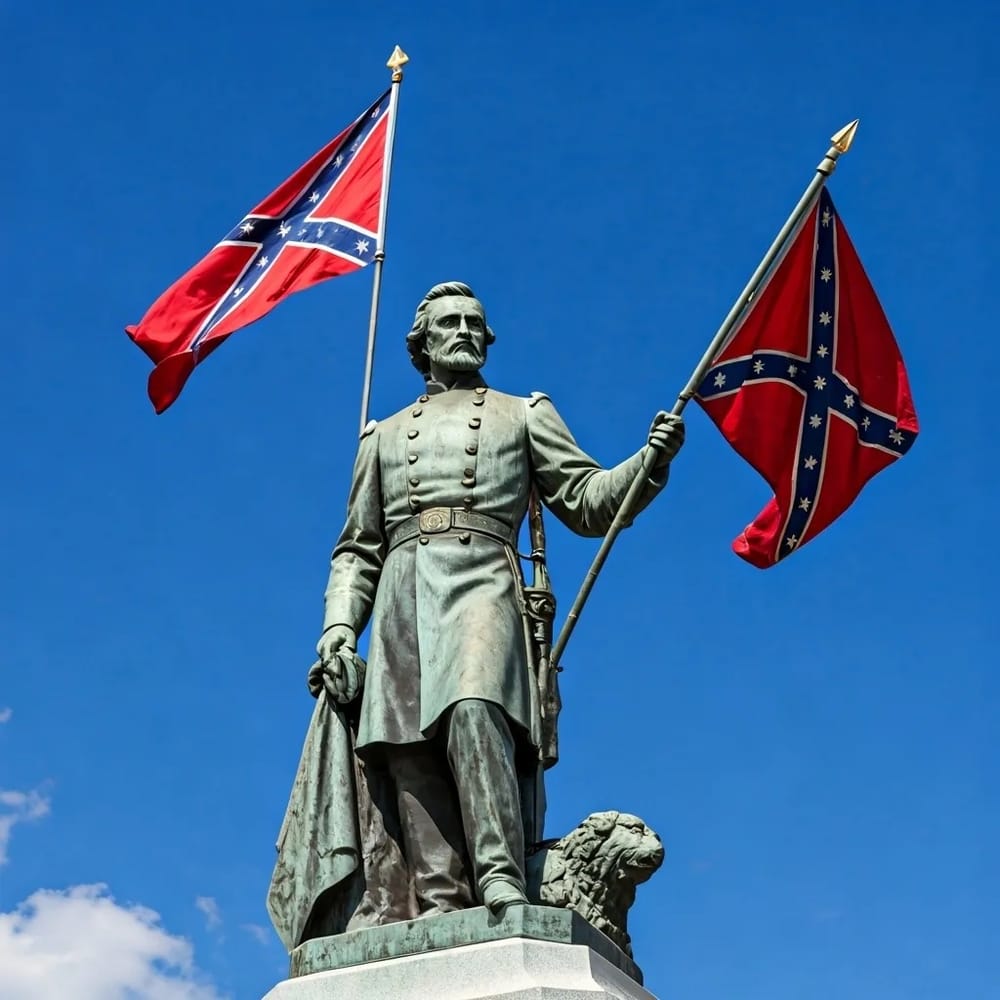While the country was glued to their screens watching chaos unfold in Los Angeles, Donald Trump quietly lobbed a grenade into the heart of American values.
On June 10, he announced that he would restore the names of U.S. military bases that once honored Confederate generals — the same traitors who waged war against the United States in defense of slavery.
Let that sink in: Trump is resurrecting tributes to men who fought against the U.S. military. And lost.
Among the names being reinstated:
· Fort Pickett, renamed by Biden to Fort Barfoot, in honor of a World War II Medal of Honor recipient.
· Fort Hood, renamed Fort Cavazos, for the first Latino four-star general who served with distinction in Korea and Vietnam.
· Fort Rucker, changed to Fort Novosel, named after a Vietnam War hero and pilot who flew over 2,500 life-saving missions.
· Fort Polk, renamed Fort Johnson, after a Black WWI hero who defended his post while wounded and under siege.
These weren’t random renamings — they were corrections. Revisions not of history, but of honor.
So how did it ever happen that U.S. military bases — again, the United States military — were named after Confederate generals in the first place?
In case you were wondering, it wasn’t in the wake of the Civil War.
The namings came decades later, mostly during and after World War II, when Jim Crow laws ruled the South and the U.S. government, eager to placate segregationists, pandered to white supremacists by naming military sites after their romanticzed Confederate generals.
But make no mistake — these men were no military geniuses.
· John Bell Hood was known for recklessness. His leadership at battles like Franklin and Nashville led to slaughter, not strategy.
· Leonidas Polk was widely regarded as incompetent — his battlefield decisions were often catastrophic.
· George Pickett led the infamous and disastrous “Pickett’s Charge” at Gettysburg, a suicidal assault that became a symbol of Confederate futility. He also ordered the execution of 22 captured Black Union soldiers — a war crime.
These weren’t brilliant tacticians. They were slaveholders. White supremacists. Enemies of America.
And they weren’t just ideologically aligned with slavery — they literally owned Black human beings. Polk was a wealthy plantation owner. Benning, Bragg, Hood, Pickett, and Rucker all enslaved people. Their “honor” was built on oppression.
Their names were elevated not because of merit, but to send a message: this is a white man’s army.
So let’s dispense with the nonsense about “erasing history.”
No one is banning books or bulldozing museums. Germany teaches the Holocaust without naming military bases after SS officers. Rwanda commemorates the genocide without putting mass murderers on street signs.
We don’t preserve history by glorifying the worst of it. We learn from it — and build better symbols for the future.
Restoring these names doesn’t make groceries cheaper or boost jobs. But it does something else — it gives a presidential thumbs-up to the ugliest corner of American identity. Again.
And in doing so, Trump once more tells Black Americans, Latino veterans, and anyone who believes in equality: your dignity is expendable.
That’s not patriotism. That’s betrayal.
And it’s not the America we should aspire to be.
This post originally appeared on Medium and is edited and republished with author's permission. Read more of Jeffrey Kass' work on Medium.
